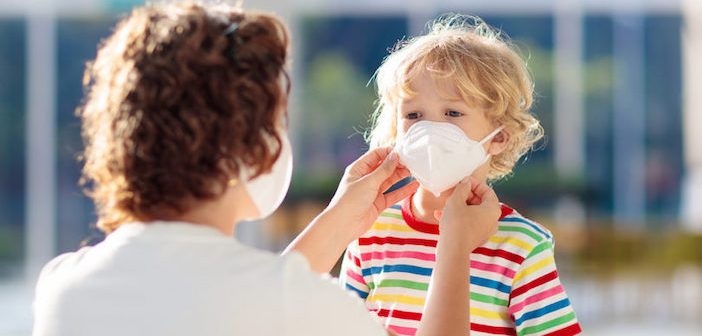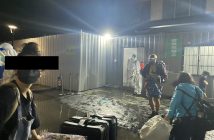Students all around China have begun to return to campus, with Beijing high school seniors returning to school on Monday, April 27. Unsurprisingly, the transition hasn’t been totally smooth and within days of seeing their kids head back to school, parents were raising concerns about what it could mean for their health. Specifically, because their children were wearing N95 masks all day, every day.
According to an article published by Beijing Capital Education, the topic has been trending on various parenting forums since the start of the week when one parent, a pediatrician, raised concerns that the restricted airflow caused by N95 masks could be causing irreversible damage to children’s still-developing heart and lungs.
Other parents quickly chimed in, saying that they’d noticed that when wearing N95 masks their children tend to breathe with their mouths rather than their noses, as they found it difficult to get enough air into their lungs. Professor at Donghua University Textile Institute Jin Xiangyu commented that as wearing a mask is like setting up a filter barrier for your respiratory system, blocks pollution, and harmful particles and droplets. Since children’s lungs are still relatively weaker than those of adults, N95 masks are preventing them from breathing comfortably.
Jin advised parents not to blindly purchase N95 masks and medical masks without consulting a professional, saying that “the ventilation of these masks is around 300 Pa, although they provide high protection, they’re not conducive to ventilation. Wearing them on a daily basis for children is not the most ideal choice.”
The N95 mask standard stipulates that the filtering efficiency of children’s masks for dust, droplets, aerosols, and other particulate matter is not less than 90 percent, and the bacterial filtering efficiency is not less than 95 percent. Yet experts in the infection management department of West China Hospital of Sichuan University, Zong Zhiyong and Wang Yantong suggested that children under the age of 7 should not wear N95 masks even if the masks have a specially designed valve at the risk of suffocation.
He Hao, head of the infection management department at the First Affiliated Hospital of Guangzhou University of Traditional Chinese Medicine, said that children are not recommended to wear masks for strenuous exercise, which may cause hypoxia. If a child needs to attend a physical education class, it is recommended to do so in a ventilated outdoor area without wearing a mask, and try to choose sports that maintain a certain distance, to avoid close contact.
It seems the wearing N95 masks for long periods of time doesn’t only affect the respiratory system of children. Across the world earlier this week in New Jersey, US the Lincoln Park Police Department recently investigated a single-car collision where the male adult driver was found to have driven his car into a wooden pole. Following an investigation, the police determined the cause of the crash “to have resulted from the driver wearing an N95 mask for several hours and subsequently passing out behind the wheel due to insufficient oxygen intake/excessive carbon dioxide intake.”
KEEP READING: Can DIY Homemade Masks Protect Us From Coronavirus?
Sources: Beijing Capital Education, NY Daily News
Photos: Readers Digest, Today’s Parent




